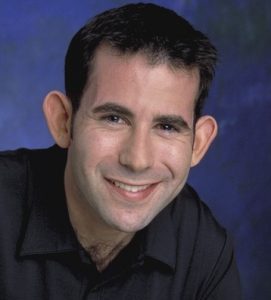HELP ME, HARLAN! Adult child’s weight gain is never about the weight
Harlan Cohen — April 13, 2017 Dear Harlan,
Dear Harlan,
My 21-year-old is gaining weight. How do I talk to him about my food and weight struggles while not making him feel like I think he’s fat? I don’t want to give him a complex or cause him to have low self-esteem.
Sensitive Topic
Dear Sensitive Topic,
I gained a lot of weight during my freshman year in college. I ate because I felt disconnected and excluded. I didn’t know how to make friends, and girls didn’t want to date me. On Saturday night, I’d usually get a Tombstone pizza, a giant bag of Doritos, a can of cheese sauce, a jar of pickled jalapenos and a huge bag of M&Ms. I ate because I was looking to disconnect. Food has always been my go-to drug of choice to help me manage my emotions and detach. My parents were always supportive, kind and loving. They didn’t know how to help me. They always included me and asked me what they could do to support me. They didn’t tell me; they asked. I eventually lost the weight (about 60 pounds), but it was because I wanted to change. I never stopped loving myself along the way. I can thank my family for this. Gaining weight is a symptom. Instead of speaking about the weight, speak to your child about how he’s feeling. You can mention that you noticed he put on a few pounds. Emphasize that you don’t care about the weight as much as you care about how he’s feeling. He might tell you he’s exercising less, eating more and loving life. Speak to how he’s feeling instead of how he’s looking, and you will have a much better chance of connecting with him.
***
Dear Harlan,
I have a son who never takes responsibility for his actions. It’s never his fault. He’s 11 years old and needs to know about accountability. How do you recommend helping a child learn how to stop blaming others and take responsibility for his actions?
Blamer
Dear Blamer,
When everyone else is the problem, there is one real problem: your kid. I know it, you know it and it’s time for him to know it. Don’t blame him – this behavior is normal. Most kids act this way at some point. When my kids get in disagreements with each other and turn to me, they never blame themselves; it’s always what someone else did. The challenge is getting them to look in the mirror and reflect. Blamers don’t like to reflect – they prefer to place blame, because it’s too uncomfortable to face their own truths. The safer you can make it for him to look at the uncomfortable truth in the mirror, the less he will need to blame others. Explain that while blaming is normal (you can even talk about your own blaming issues), it just makes it hard to figure out the bigger problems. It also takes up time and creates enemies. Next time he blames someone else, ask him to take a step back and pretend he’s an observer. Have him explain the situation from each person’s point of view. What is each person feeling? Does he think the person who is being blamed did this on purpose or by accident? What could the person who is upset say or do to work through this? What could each person ask to find a solution? Help him remove himself from the conflict so he can reflect and explain the situation. If he can get in the habit of safely reflecting with you, he can work to blame less and reflect more on his own in the future.
***
Harlan is author of “Getting Naked: Five Steps to Finding the Love of Your Life (While Fully Clothed and Totally Sober)” (St. Martin’s Press). Write Harlan at harlan(at)helpmeharlan.com or visit online: www.helpmeharlan.com. All letters submitted become property of the author. Send paper to Help Me, Harlan!, 3501 N. Southport Ave., Suite 226, Chicago, IL 60657.
© Harlan Cohen 2017
Distributed by King Features Syndicate Inc.



